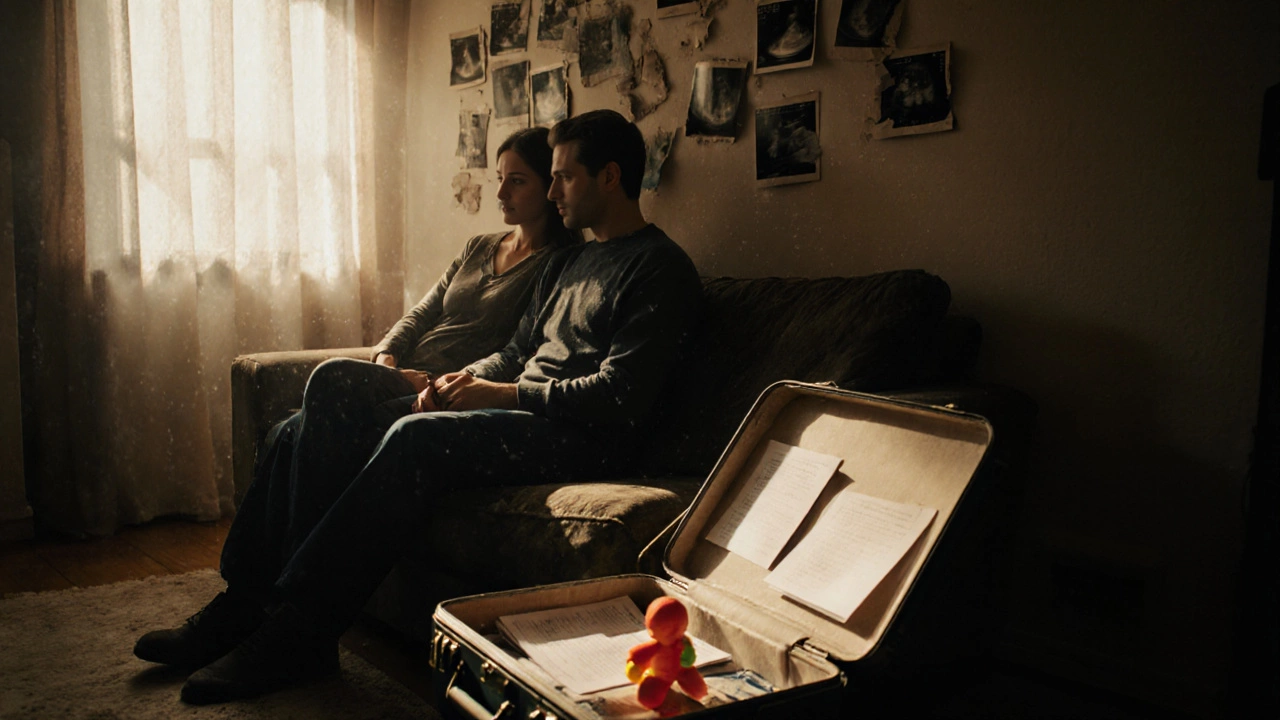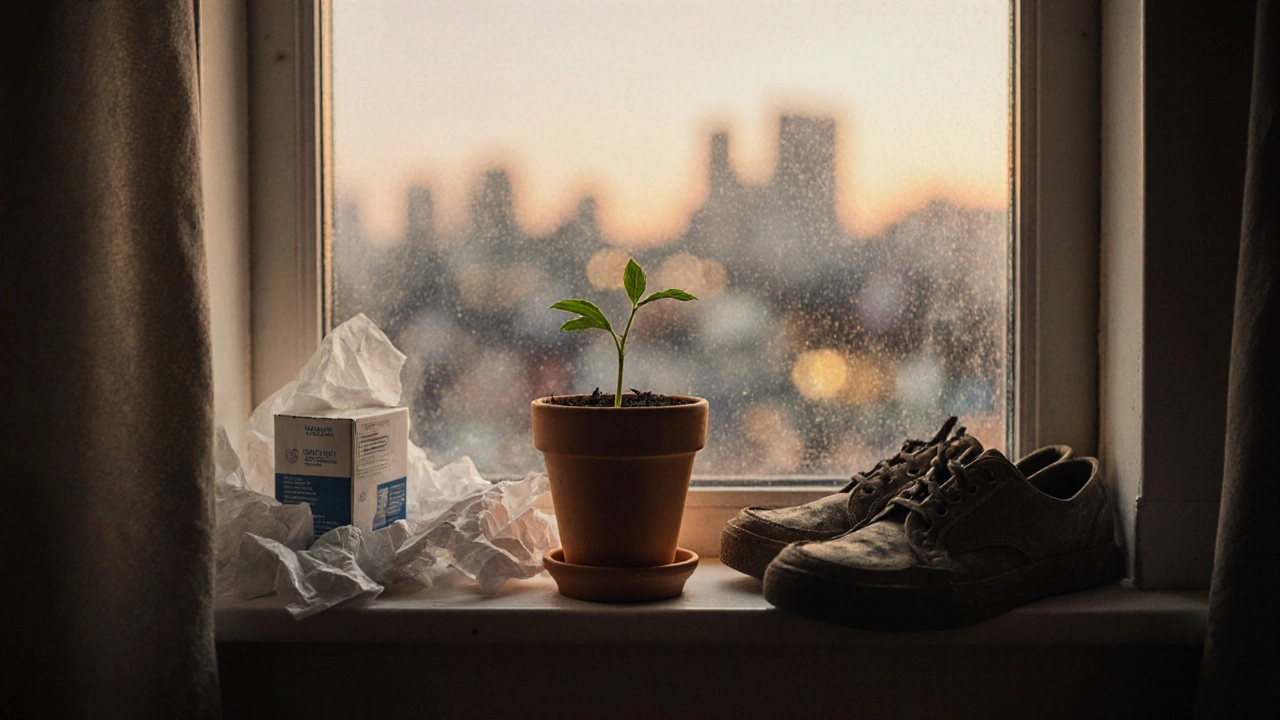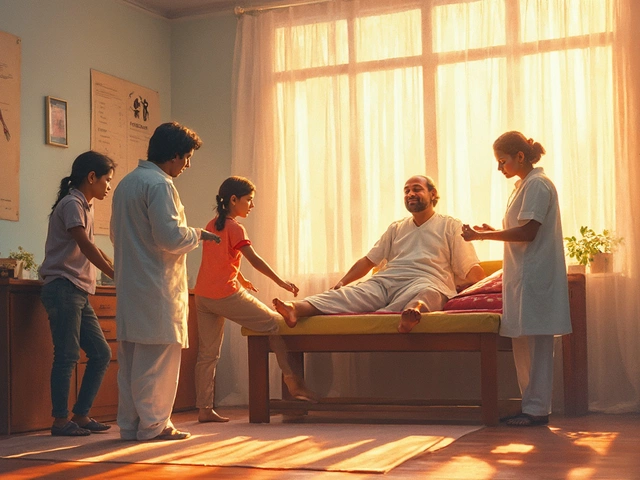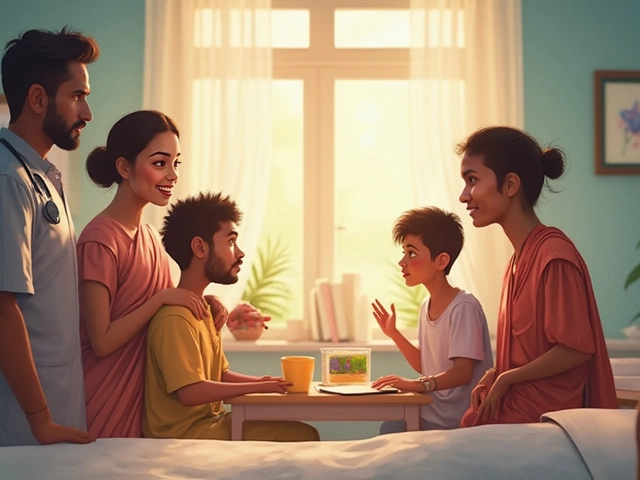IVF Cost & Success Calculator
IVF Financial and Success Calculator
Calculate estimated costs and success rates based on your age and cycle number
IVF isn’t just a medical procedure. It’s a rollercoaster that rewires your life for months, sometimes years. People talk about the injections, the clinic visits, the hope on embryo transfer day. But the hardest part? It’s not the pain. It’s not even the cost. It’s the quiet, daily erosion of your sense of control - over your body, your timeline, your future.
The Weight of Waiting
You think the hardest part is the egg retrieval or the embryo transfer. But the real grind is the waiting. Waiting for blood test results. Waiting for the clinic to call with news. Waiting for your body to respond to hormones that make you feel like a stranger in your own skin. One woman in Bangalore told me she’d check her phone every 12 minutes after a blood draw, even though the lab said results took 48 hours. That kind of tension doesn’t fade. It builds. And when the call comes and it’s not what you hoped for, the grief hits like a physical blow.
There’s no official mourning period for a failed cycle. No sympathy cards. No time off work. You’re expected to bounce back, try again, stay positive. But grief doesn’t follow a calendar. And the longer you’re in the cycle, the more you start to wonder: Is my body broken? Am I the problem? The silence from friends and family cuts deeper than any comment.
The Financial Toll
One IVF cycle in India costs between ₹1.5 lakh and ₹3 lakh. That’s not including medications, which can add another ₹50,000 to ₹1 lakh. Most insurance plans don’t cover it. For many couples, this means draining savings, taking loans, or selling assets. A couple in Pune sold their car to fund their third cycle. Another couple in Hyderabad postponed their child’s school fees to pay for IVF.
And here’s the cruel part: success rates drop with each cycle. For women under 35, the chance of a live birth per cycle is about 30-35%. For women over 40, it’s closer to 10-15%. That means you might spend ₹6-8 lakhs - sometimes more - for a single chance. And even then, it’s not guaranteed. The financial pressure doesn’t just strain your bank account. It strains your relationship. Arguments about money, guilt over spending, resentment over sacrifice - these become silent guests in your home.
The Emotional Isolation
Most people don’t understand IVF until they’ve lived it. Friends say, “Just relax, it’ll happen.” Or worse: “Why don’t you adopt?” They mean well. But their words feel like a dismissal of your pain. You stop sharing updates. You delete pregnancy announcements on social media. You avoid baby showers. You lie about why you’re not going out. The loneliness isn’t about being alone - it’s about being surrounded by people who can’t see what you’re carrying.
Men suffer too, but they’re rarely asked how they’re doing. One husband in Bangalore said he cried in the car after his wife’s third failed cycle, but never told her. He didn’t want to add to her burden. That silence? It builds walls. Couples start living parallel lives - one focused on the next cycle, the other just trying to survive it.

The Loss of Identity
Before IVF, you were a professional, a partner, a friend, a sibling. After months of cycles, you become “the one trying for a baby.” Your identity shrinks. Your conversations revolve around follicle counts, progesterone levels, and embryo grades. Your hobbies fade. Your social life dries up. You stop traveling. You stop saying yes to things that don’t fit around your calendar.
Women in their 30s and 40s often feel like they’ve lost their youth. “I used to go out on weekends,” said a 38-year-old teacher from Chennai. “Now I’m home at 7 p.m. because I have to take my shots before bed.” The fear isn’t just about not having a child. It’s about becoming someone you don’t recognize - someone defined by infertility.
The Uncertainty of Success
Doctors give you numbers. “Your chance is 30%.” But numbers don’t tell you what happens when it doesn’t work. You don’t know if it was the egg, the sperm, the lab, the transfer, or just bad luck. You replay every detail. Did I eat the wrong thing? Did I stress too much? Was the clinic rushed? You start blaming yourself - even when the science says it’s often unexplained.
And then there’s the myth of “just one more try.” Clinics rarely say when to stop. They say, “We can try again.” But your body can’t. Your wallet can’t. Your heart can’t. The hardest decision isn’t whether to continue - it’s knowing when to walk away. And that choice? It comes with its own grief.

The Pressure to Be Strong
Society expects IVF patients to be warriors. To be grateful. To be hopeful. To smile through the pain. But you’re not a warrior. You’re a human being. You’re tired. You’re angry. You’re scared. And that’s okay.
There’s no prize for enduring IVF with grace. No medal for not crying. No applause for going back to work the next day. You don’t have to be strong. You just have to survive. And sometimes, survival means saying no - to another cycle, to a friend’s baby shower, to the pressure to “stay positive.”
What Helps - Really
What helps isn’t a miracle cure. It’s not a better clinic or a cheaper package. It’s connection. Talking to someone who’s been there. Finding a support group - even online. Reading stories from people who failed, but kept living. Hearing that it’s okay to be broken.
Some couples find peace in therapy. Others find it in journaling, yoga, or even just walking alone in the park. One couple in Bangalore started a ritual: every time they got bad news, they planted a seed. Not because they believed it would grow into a baby. But because it reminded them they were still capable of nurturing something.
And sometimes, what helps is letting go - not of hope, but of the idea that your worth is tied to a positive pregnancy test. Your value isn’t in your ovaries. It’s in your resilience, your love, your courage to keep showing up - even when the odds are against you.
It’s Not Just About Having a Baby
The hardest thing about IVF isn’t the injections or the cost or the waiting. It’s the quiet, daily question: “Will I ever be a parent?”
And the answer? It’s not written in a lab report. It’s written in the way you choose to live - whether you have a child or not. IVF doesn’t define you. But how you move through it? That does.
What is the biggest emotional challenge in IVF?
The biggest emotional challenge is the loss of control - over your body, your timeline, and your future. The constant waiting, the fear of failure, and the isolation from friends and family who don’t understand can lead to deep anxiety and grief, even when the medical process is going smoothly.
How much does IVF cost in India?
A single IVF cycle in India typically costs between ₹1.5 lakh and ₹3 lakh. Medications can add another ₹50,000 to ₹1 lakh. Most insurance plans don’t cover IVF, so many couples pay out of pocket, often draining savings or taking loans. Success rates drop with each cycle, meaning multiple cycles can cost ₹6-8 lakhs or more.
What are the success rates for IVF?
For women under 35, the live birth rate per IVF cycle is around 30-35%. For women aged 35-37, it drops to about 25%. For women 38-40, it’s 15-20%, and for those over 40, it’s around 10-15%. These numbers are based on data from Indian fertility clinics and global studies like those from the Society for Assisted Reproductive Technology (SART).
Why do some couples stop IVF after multiple failures?
After multiple failures, couples often stop because of emotional exhaustion, financial strain, or physical toll from repeated treatments. Many feel they’ve lost their sense of self, their relationship has changed, or they’re no longer able to hope without pain. It’s not a failure - it’s a deeply personal decision to protect their well-being.
Can IVF cause long-term mental health issues?
Yes. Studies show that women undergoing IVF have higher rates of anxiety and depression than the general population, especially after failed cycles. The stress doesn’t always disappear after treatment ends. Some people develop what’s called “infertility-related PTSD,” where triggers like baby showers or pregnancy announcements cause intense emotional reactions years later.
Is there help available for the emotional side of IVF?
Yes. Many fertility clinics in India now offer counseling services. Support groups like IVF India and online forums provide peer connection. Therapy with a specialist in reproductive mental health can help manage anxiety, grief, and relationship strain. You don’t have to go through this alone - help exists, even if it’s hard to find.








